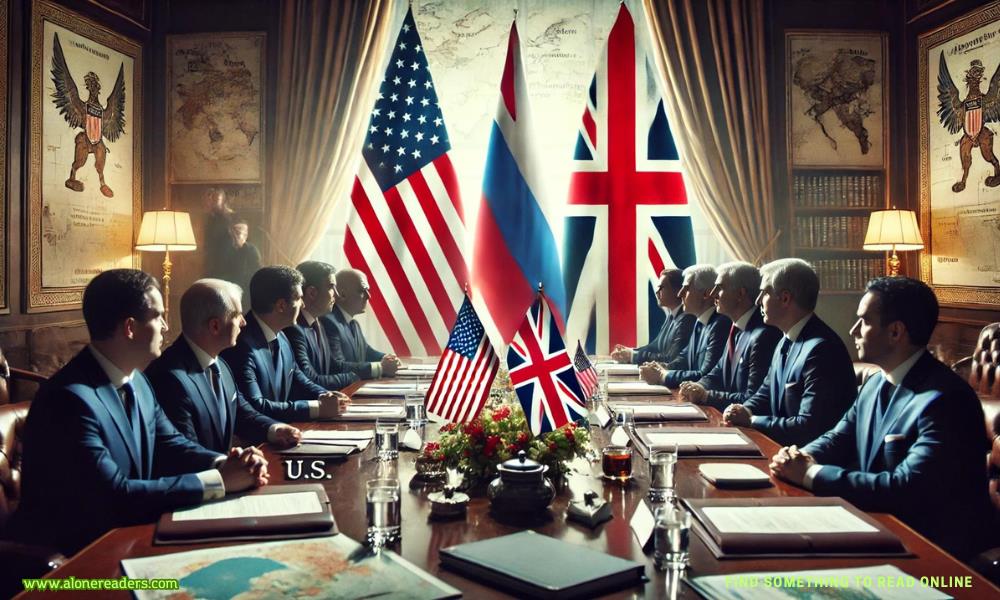
The United Kingdom and the United States, two of the most enduring allies in international relations, have recently entered a new phase of coordinated diplomatic and military strategy. The UK-US Strategic Dialogue, held in Washington D.C., saw senior officials from both nations discussing a range of security threats posed by Russia and Iran. This high-level dialogue emphasized defense cooperation, intelligence sharing, and the implementation of economic sanctions as part of a broader effort to address the escalating challenges in Europe and the Middle East.
At the heart of the dialogue was the focus on defense cooperation. As tensions continue to rise in Eastern Europe due to Russia's ongoing military involvement in Ukraine, the U.K. and U.S. reaffirmed their commitment to NATO and their shared defense responsibilities. This includes ensuring that NATO remains a formidable force capable of deterring Russian aggression.
The United States Secretary of Defense and the United Kingdom's Defense Secretary outlined a plan to increase military readiness in the region. This involves enhanced troop deployments, joint military exercises, and intelligence cooperation. One key aspect is the possibility of deploying more advanced air defense systems to protect NATO member states close to the Russian border, such as Poland and the Baltic countries.
“The security of NATO’s Eastern Flank is paramount, and we must remain united in our deterrence strategy against any Russian encroachment,” stated the U.S. Secretary of Defense. The U.K. echoed this sentiment, with officials highlighting the importance of military collaboration in the face of Russian provocations.
In addition to military efforts, economic sanctions against Russia and Iran were central to the discussions. Both nations have been subjected to heavy sanctions in recent years, particularly following Russia’s annexation of Crimea in 2014 and Iran’s ongoing nuclear activities.
The U.K. and U.S. agreed to intensify sanctions targeting key sectors of the Russian economy, including energy, finance, and defense industries. These sanctions aim to cripple Russia's ability to fund its war in Ukraine and send a message that continued aggression will not go unpunished. Among the proposals is the tightening of restrictions on Russian oil exports, which still play a crucial role in funding the country's war machine.
The U.K.’s Foreign Secretary stated, “Russia must be held accountable for its actions in Ukraine. Economic pressure is one of the most effective tools we have, and we will not hesitate to use it further.”
For Iran, the focus was on curbing its nuclear ambitions and regional influence, particularly in Syria, Iraq, and Yemen. The U.S. and U.K. are concerned about Iran’s growing missile capabilities and its support for militant groups in the Middle East, such as Hezbollah in Lebanon. Both nations vowed to continue their sanctions aimed at stifling Iran's military funding and limiting its capacity to further destabilize the region.
The dialogue also delved into the importance of intelligence sharing between the U.K. and U.S. to counter growing threats from Russia and Iran. The U.S. National Security Advisor and the U.K.'s Chief of the Secret Intelligence Service emphasized the need for continued cooperation in counterintelligence operations. These operations target not only state actors but also non-state groups aligned with Russia and Iran.
Cybersecurity is an increasing concern as both Russia and Iran have been accused of using cyberattacks as a means of espionage and destabilization. The U.K. and U.S. are working together to bolster their cyber defenses, particularly in sectors such as energy, telecommunications, and finance, which have been targeted by Russian and Iranian hackers in recent years.
The U.S. Cybersecurity and Infrastructure Security Agency (CISA) has already begun sharing information on recent cyberattacks attributed to Russia, and the U.K.’s National Cyber Security Centre has agreed to integrate more closely with U.S. cyber defense initiatives.
While military and economic strategies dominated much of the UK-US Strategic Dialogue, there were also significant discussions about how both countries can leverage their diplomatic influence in multilateral organizations such as the United Nations and the European Union. The goal is to ensure that other nations remain aligned with the U.K. and U.S. in their actions against Russia and Iran.
There is growing concern that certain countries are willing to circumvent sanctions on Russia and Iran, particularly when it comes to energy markets. As a result, both nations are working closely with allies in Europe, Asia, and the Middle East to prevent the erosion of sanctions and ensure a unified front in applying diplomatic pressure.
The dialogue also touched upon humanitarian efforts, particularly in Ukraine, where the ongoing conflict has displaced millions of people. The U.K. and U.S. reaffirmed their commitment to providing humanitarian aid, including food, medical supplies, and shelter for displaced populations. Moreover, discussions were held about assisting the Ukrainian government in rebuilding efforts post-conflict.
The coordinated actions discussed in the UK-US Strategic Dialogue go beyond Russia and Iran, as they reflect a broader strategy by the U.K. and U.S. to reaffirm their global leadership in maintaining international security. By working together, both nations are positioning themselves as the main drivers behind a rules-based international order, where aggression is met with swift and unified responses.
In addition, these efforts signal to other adversarial powers, such as China, that the U.K. and U.S. are prepared to act decisively in defense of their allies and global stability. The dialogue also serves as a reminder to smaller nations that the U.K. and U.S. remain deeply invested in global security, whether it be in Eastern Europe, the Middle East, or beyond.
Conclusion
The UK-US Strategic Dialogue represents a pivotal moment in the ongoing efforts by the United States and the United Kingdom to confront the growing threats posed by Russia and Iran. By focusing on defense cooperation, economic sanctions, intelligence sharing, and diplomatic coordination, both countries are sending a clear message: aggression and destabilization will not be tolerated. While challenges remain, the unity displayed by the U.K. and U.S. in these talks is a powerful signal to the world of their enduring commitment to global security and the rule of law.